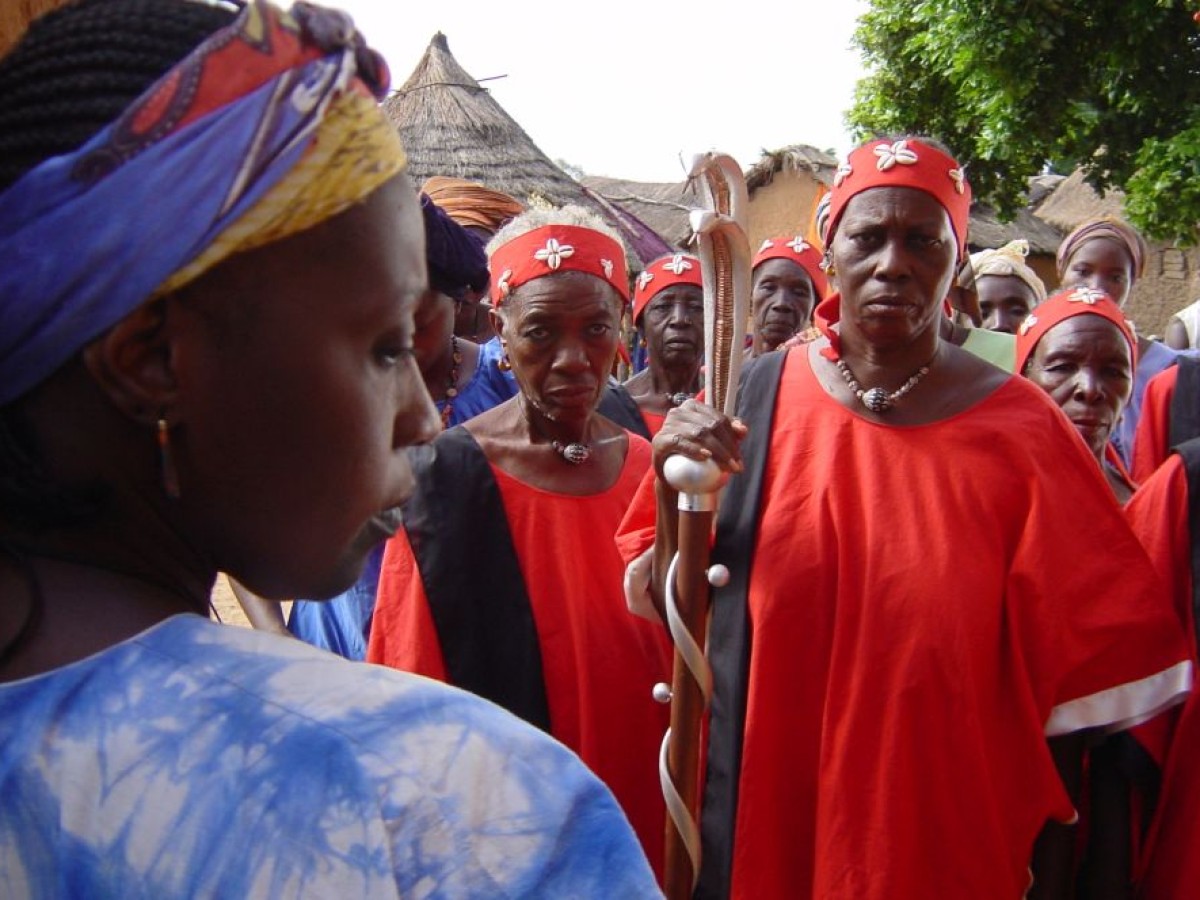Ousmane Sembène
The Complete Works
November 1 to 11, 2004
Cannes, May 2004: The most recent film of an 82-year-old director from Senegal is declared to be the "true winner" of the festival by many international observers, even though it is shown out of competition. The film in question: Moolaadé. The director: Ousmane Sembène.
Sembène is considered to be the most significant filmmaker on the African continent. In the 1960s and 70s, he became the founder of Sub-Saharan cinema – and his influence on younger generations of filmmakers from Africa continues to this day. In November, the Film Museum will show his complete work.
Born in 1923 in Ziguinchor, Senegal, Sembène was raised by his uncle, an Islamic teacher. His official school education in Dakar ended after a fistfight with the headmaster. In the 30s he worked as a mason, but soon developed an interest for the theatre and for the exponents of traditional oral story-telling (griots). Their forms of relating history are one of the principal sources of inspiration for his aesthetic.
In 1942, Sembène joined the French colonial forces; he fought with the artillery in Africa and Europe, and took part in the major railway workers' strike in 1947/48 on the line from Dakar to Niger, a watershed event in the history of African self-determination. After this, he was a dock labourer in Marseille, where he became a union member and joined the Communist party. In the following decade he undertook several journeys throughout Europe and established a name for himself as one of the leading African writers with such autobiographically influenced novels as "Le docker noir" (1956) and "Les bouts de bois de dieu" (1960, about the railway strike). As African literature had a limited range at the time (the language of choice was French and the majority of the readership one was trying to reach was illiterate), Sembène decided to turn to the "universal language" of cinema. He studied film with Mark Donskoi in Moscow in 1962 and one year later completed his first short film, Borom Sarret. He followed this in 1966 with La noire de..., the first black African feature film, and two years later with the biting satire Mandabi (The Money Order), the first film ever in the main language of his home country, Wolof.
Sembène's films interweave the personal and the political in an unusual manner. Realistic on the surface with a clear and simple story line, they also establish a distinctive tone of voice which one could call "Brechtian naturalism". Above and beyond the element of popular story-telling, they provide incisive allegories and scathing descriptions of post-colonial Africa (for example, in Xala, a comedy about impotence). From the start, Sembène was afflicted by far worse financing problems than those confronting almost all other outstanding directors of world cinema. He derived his income almost solely from his writing. This explains why his oeuvre is relatively small, from a Western point of view, yet also unimpeachable. After his epic masterpieces on the horrors of the colonial era (Emitai, Ceddo and Camp de Thiaroye), the ensuing Guelwaar (1993) constituted a blending of his works up to that point. Sembène's most recent works, the surprisingly cheery comedy Faat-Kiné and Moolaadé, a shrewd drama about female circumcision, focus primarily on the role of women. Sembène sees women as the true source of hope for a successful and truly independent construction of African society.
The first screening of Moolaadé will take place on October 27 during the Viennale; the second screening, on November 1, will mark the beginning of the Film Museum's Retrospective. Alongside all of Ousmane Sembène's films, the show will also present the documentary Sembène: The Making of African Cinema (1994), as well as a lecture by the Viennese cultural critic Christian Höller.


